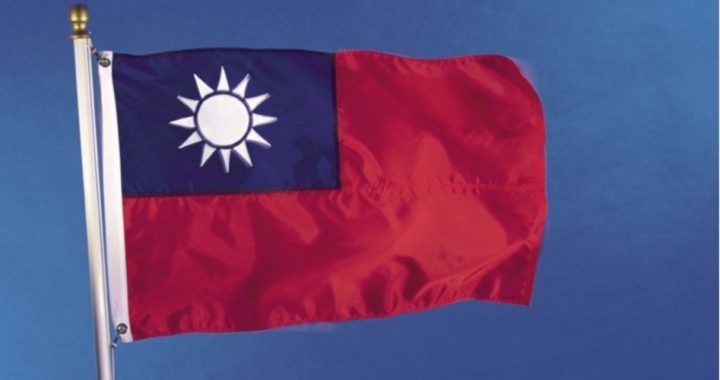
Speaking on Fox News Sunday on December 11, President-elect Donald Trump said he did not believe that the United States necessarily had to continue its long-standing position that Taiwan (flag shown) is part of “one China.”
“I fully understand the ‘one China’ policy, but I don’t know why we have to be bound by a ‘one China’ policy unless we make a deal with China having to do with other things, including trade,” Trump told Fox News host Chris Wallace.
The “one-China” policy refers to the position that there is only one state called “China,” despite the existence of two governments that claim to be the sole legitimate authority entitled to govern both mainland China and the island of Taiwan. These are the People’s Republic of China, a communist regime based in Beijing, and the Republic of China on Taiwan.
From the time the government of the Republic of China (ROC), headed by Chiang Kai-shek, fled to Taiwan in 1949 — after the takeover of the mainland by the communist regime headed by Mao Tse Tung — until 1979, the United States recognized the ROC as the legitimate government of all of China. That ended on January 1, 1979, when President Jimmy Carter and communist Chinese leader Deng Xiaoping signed the U.S.-PRC Joint Communiqué, under which the United States withdrew diplomatic recognition of the ROC in Taipei and transferred it to the communist PRC in Beijing.
The stage for this change in U.S.-China relations had been set when President Richard Nixon visited mainland China in 1972, after which the United States and the PRC issued the Shanghai Communiqué. Though this agreement did not lead to immediate recognition of the PRC, “liaison offices” were established in Beijing and Washington. More significantly, the United States acknowledged the PRC position that all Chinese on both sides of the Taiwan Strait maintained that there is only one China and that Taiwan is part of China.
A 2001 article in The New American noted significant changes in U.S. policy toward China following Nixon’s 1972 visit:
After the fall of the mainland, the People’s Republic of China was officially shunned by Washington. But that abruptly changed in 1972 when Republican President Richard Nixon made his pilgrimage to China, setting the stage for Democratic President Jimmy Carter’s termination of diplomatic relations with Taiwan on the last day of 1978 and the establishment of diplomatic relations with the PRC on the first day of 1979. From that date on, the U.S. has recognized only the Communist government as legitimate, but undoubtedly no American president has put this betrayal in as explicit terms as Bill Clinton, who stated on [his 1998] China trip: “We don’t support independence for Taiwan, or ‘two Chinas,’ or ‘one Taiwan, one China,’ and we don’t believe Taiwan should be a member in any organization for which statehood is a requirement.”
Bill Clinton’s statement makes one wonder what Hillary Clinton’s policies toward China and Taiwan might have been, if she had been elected president instead of Trump.
Following the 1979 communiqué in which the United States effectively declared the ROC to be persona non grata, no U.S. president has had any contact with any leader of Taiwan. Therefore, when Trump accepted a congratulatory phone call on December 2 from Tsai Ing-wen, the president of the Republic of China (ROC), the incident received much attention in the media, and the communist government of PRC issued a formal complaint about Trump’s action.
Trump’s conversation with Tsai was considered to be a departure from the protocol dictated by U.S. acceptance of the one-China policy.
Following Trump’s statement on Fox News Sunday that he did not know why the United States has to be bound by a “one China” policy, the PRC government stated that cooperation with the United States “would be out of the question” if Trump doesn’t continue the “one China” policy.
“I want to stress that the Taiwan question has a bearing on China’s sovereignty and territorial integrity,” said PRC Foreign Ministry spokesman Geng Shuang.
“Adhering to the ‘one China’ principle is the political bedrock for the development US-China relations. If it is comprised or disrupted, the sound and steady growth of the bilateral relationship, as well as bilateral cooperation in major fields would be out of question,” the statement continued.
Related articles:
Trump Phone Conversation With Taiwan Head Rankles Chinese Communists
Communist China: Made in the U.S.A.
After Intercepting U.S. Reconnaissance Plane, China Issues Demand
U.S.-China War “Inevitable” If U.S. Continues Flights Over Claimed Islands



